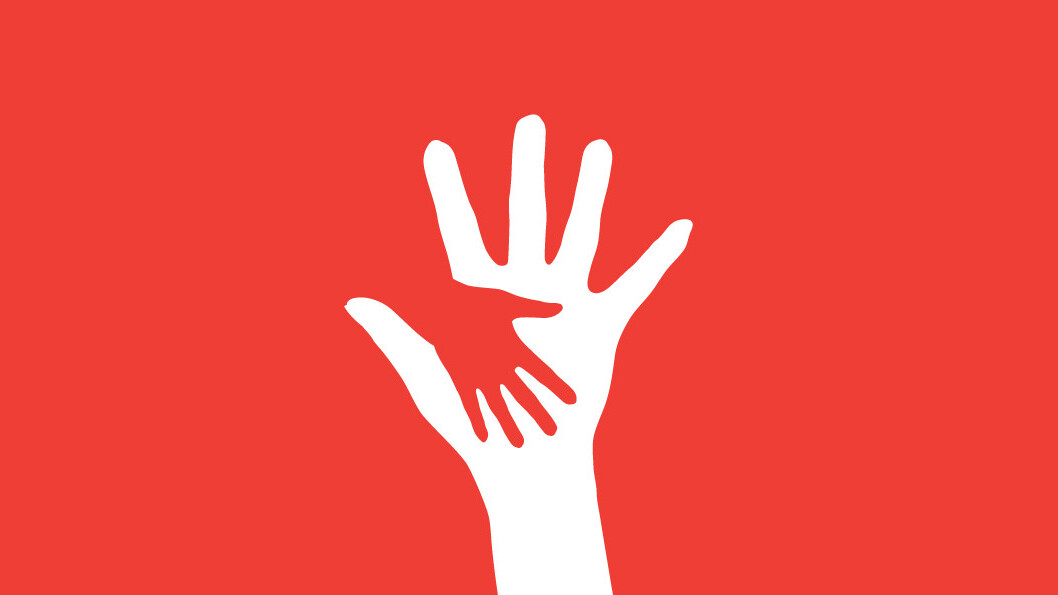
Philanthropy isn’t only for the big guys. While tech giants Google and Apple announced their donation efforts last week, there is plenty of room for others.
From multiple “Airbnb for refugees” popping up around the world to simply volunteering to be a human wifi hotspot, technology is being used as a vital tool for aid. With the latest numbers from the International Organization for Migration as a record-breaking 473,887 refugees and migrants from the Mediterranean to Europe just this year alone, everything helps.

The past few weeks we’ve been presenting companies using technology with a humanitarian focus – here and here. As we close our three-part series, we not only look at companies helping the refugee crisis, but also those finding solutions to aid the world’s other marginalized populations.
Not Impossible
Not Impossible Labs creates accessible technology-based solutions primarily in the areas of health, mobility, and communication. By collaborating with a growing community of creative makers and hackers, NI provides low-cost solutions on an open-source, DIY platform and directly changes lives around the globe.
Most notably is ‘Project Daniel,’ which teaches and equips rural Sudan residents how to create 3D-printed prosthetic limbs in hopes that children and adults in Africa and around the globe will utilize the power of this new technology for those affected by war and land mines.

Dubarah
Dubarah is a service network supporting Syrians wherever they are. Dubarah connects new Syrians with those who have spent longer times in these countries while also providing them with information on job and educational opportunities as well as providing psychological support.

Disaster Tech Lab
Disaster Tech Lab provides rapid response communication networks for use in disaster relief and humanitarian aid work. Networks and services help to connect responding organizations and affected communities as well as develop new technologies for use in disaster response work.

Digital Humanitarian Network
Digital Humanitarian Network leverages digital networks in support of 21st century humanitarian response. Members of the group form Volunteer & Technical Communities to provide an interface between formal, professional humanitarian organizations and informal yet skilled-and-agile volunteer and technical networks.
Additionally, they plan organize a crisis simulation to assess workflow and improve productivity and aid.

TechSoup
Perhaps the largest technology philanthropy program in the world, TechSoup wants to supply every nonprofit and NGO on the planet with the technology resources and knowledge it needs to operate at its full potential. They assist organizations with obtaining, using and sustaining technology.

Ushahidi
Swahili for “testimony” or “witness,” Ushahidi was first developed to map reports of violence in Kenya post-election 2008 and has since been used to chronicle political violence throughout Africa and as a first-responder to the 2010 earthquake in Haiti.
The open-source platform is customizable to local needs and strives to increase access to information, empower citizens and protect marginalized communities.

Repurpose Schoolbags
More than 30 African countries experience regular power outages and interruptions and kerosene lanterns and other alternative means of lighting kill at least 3 million people each year. One organization is making sure children’s education doesn’t go dark.
Repurpose Schoolbag recycles plastic into practical bags with a solar panel insert that charges as the children walk to and from school. The insert then transforms into a solar lantern allowing them to study for up to 12 hours.

GlobalGiving
The first and largest global crowd-funding community, GlobalGiving connects donors to nonprofits in nearly every country around the world. The organization makes it easy and safe for donors to give to local projects anywhere in the world, while providing nonprofits with the tools, training, and support they need to become more effective.

First Mile Geo
First Mile Geo, a business intelligence and geospatial company, offers users the ability to collect, visualize and monitor data “in any language and on the fly.” The software provides key insights about realities on the ground allowing aid workers to know what specific aid is needed in different regions and enabling aid packages to get where they need to go more efficiently.

Hello Tractor
Hello Tractor’s innovative and low-cost “Smart Tractors” allow Nigerian farmers to earn more, plant on time and grow communities. Equipped with various attachments, owners can tailor its use for a variety of crops and stages of the production cycle, allowing them to serve their customers throughout the year.
The company also pairs Smart Tractor owners with neighboring small landowners giving greater access to affordable farm machines and increasing productivity.

We hope that this series has inspired you to learn more about an organization or donate in some way. You can view the full list of organizations and companies using technology for good here.
We are continuously adding to our list and welcome your suggestions. As always, TNW proudly supports Save the Children. If you would like to donate, please do so here.
Minecraft kid image credit: mdmd889 on Reddit
Get the TNW newsletter
Get the most important tech news in your inbox each week.




